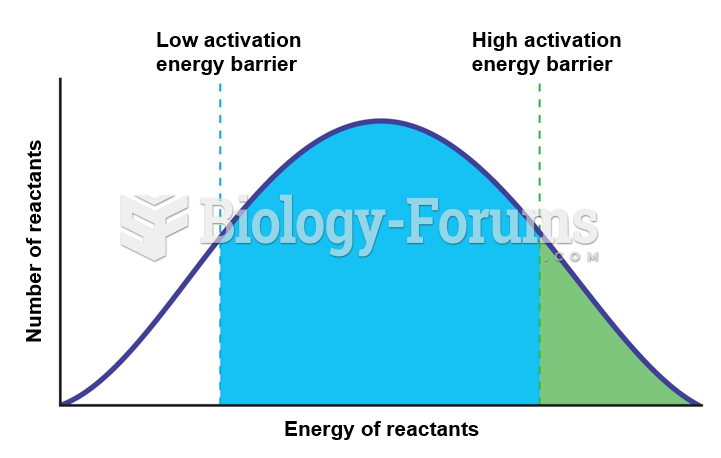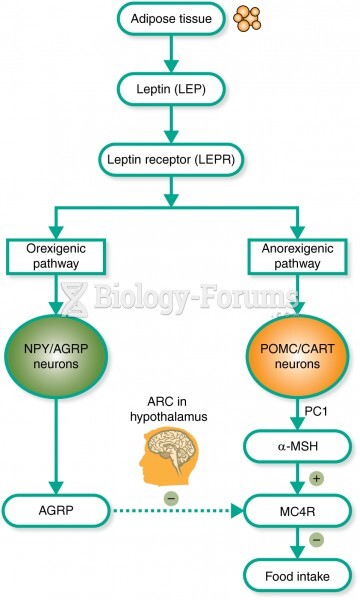|
|
|
Human kidneys will clean about 1 million gallons of blood in an average lifetime.
The first documented use of surgical anesthesia in the United States was in Connecticut in 1844.
Asthma attacks and symptoms usually get started by specific triggers (such as viruses, allergies, gases, and air particles). You should talk to your doctor about these triggers and find ways to avoid or get rid of them.
When blood is exposed to air, it clots. Heparin allows the blood to come in direct contact with air without clotting.
The toxic levels for lithium carbonate are close to the therapeutic levels. Signs of toxicity include fine hand tremor, polyuria, mild thirst, nausea, general discomfort, diarrhea, vomiting, drowsiness, muscular weakness, lack of coordination, ataxia, giddiness, tinnitus, and blurred vision.







